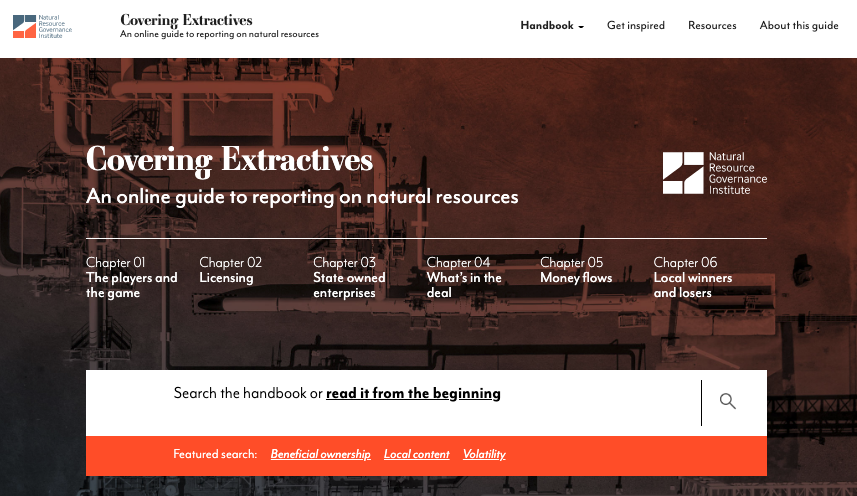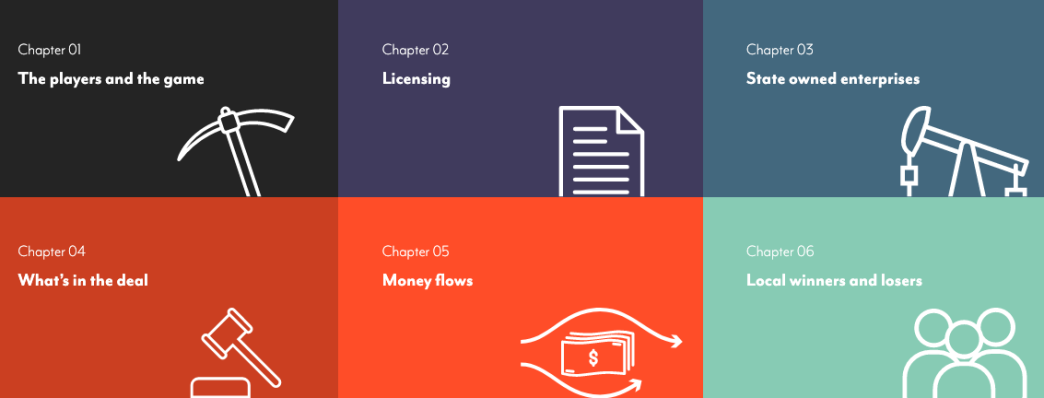
New Guide Helps Journalists Shed Light on Extractives Sector in Turmoil
Extractive projects around the world have been disrupted by the pandemic and falling commodity prices, and governments in resource-rich countries are scrambling to respond. In some instances, governments are making significant fiscal concessions to extractive companies to attract or maintain investment. Meanwhile, rising restrictions on freedom of expression and association are amongst many factors preventing proper scrutiny of government action.
This context requires strong journalism to raise critical questions and foster public debate about the management of natural resources. Yet, reporting on the extractive industries is no easy task: the sector is technically complex and often secretive. To cover resource governance effectively, journalists must be able to follow leads across industries and borders, find and interpret essential data, and translate highly technical issues into meaningful stories with human interest. To support journalists to meet those requirements and produce reporting which holds governments and companies to account, NRGI has released a new and completely free resource, Covering Extractives: An Online Guide to Reporting on Natural Resources. The online guide is intended to support high-quality media reporting on national and cross-border issues in the oil, gas and mining sectors and their governance.
The guide draws on NRGI’s experience as an institution committed to the rigor, accessibility, relevance and independence of research, and includes a wide range of guides and resources for journalists who are new to the area, and those looking to deepen their expertise.
Covering Extractives provides an introduction to the sector by following the extractive sector decision-making chain; from allocating resource rights to evaluating the impact of extraction on local people and the environment. The guide explains the key workings of the extractive industries and highlights the opportunities and challenges often faced in resource-rich countries.
Across the six thematic chapters, journalists can find inspiring examples of reporting, insight from seasoned reporters, ideas for compelling stories and advice on how to pursue them, and stakeholder interviews from different perspectives. The content is searchable, or available to browse online or download as a PDF, enabling users to find what is most useful to them.
The guide also includes a special tip sheet on covering the pandemic’s impact on natural resource governance.
Although relevant to journalists everywhere, the guide highlights particular examples from Tanzania, Uganda, Ghana and Myanmar, where NRGI has gained valuable insight from its media training partnerships. Building on 15 years of experience of training journalists to hold the extractive industries to account, Covering Extractives can be a critical tool for driving change in natural resource governance.
Covering Extractives includes videos from extractives professionals and journalists, such as this from Proscovia Nabbanja, CEO of the Uganda National Oil Company.
Asmara Klein is senior program officer for civic space at the Natural Resource Governance Institute (NRGI).


